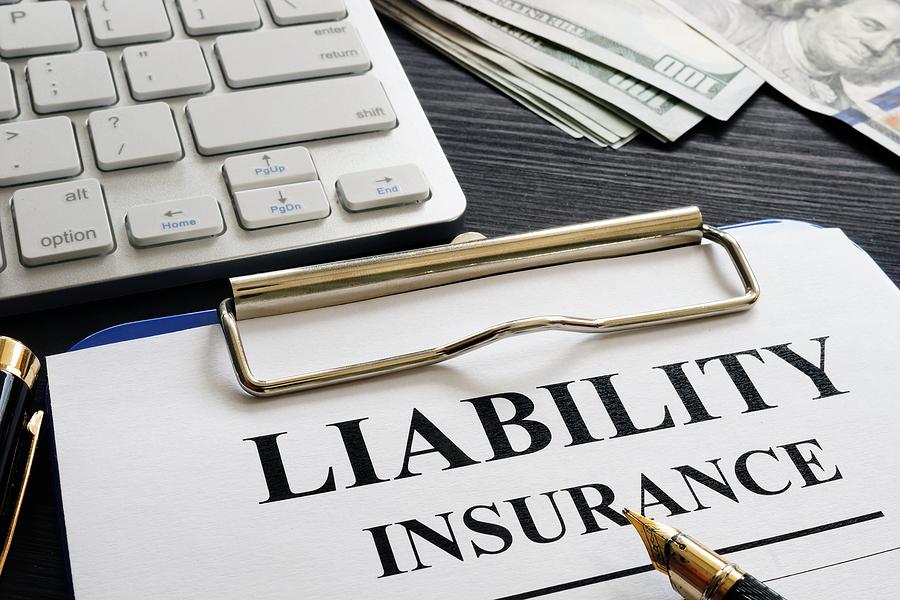If you’re a landlord, protecting your investment goes beyond just finding great tenants—it means being prepared for the unexpected. That’s where landlord liability coverage comes in. Whether you’re new to renting out property or a seasoned pro, understanding this type of insurance can save you from costly headaches down the road. In this article, we’ll break down what landlord liability coverage is, why it matters, and what you need to know to keep your rental property—and your peace of mind—secure. Let’s dive in!
Table of Contents
- Understanding Landlord Liability Coverage and Why It Matters
- Common Risks Covered Under Landlord Liability Insurance
- How to Choose the Right Landlord Liability Policy for Your Property
- Practical Tips to Reduce Liability and Protect Your Investment
- Wrapping Up
Understanding Landlord Liability Coverage and Why It Matters
When you own rental property, you’re stepping into a role that carries responsibilities far beyond just collecting rent. Landlord liability coverage steps in as your safety net, protecting you from potential legal and financial headaches arising from accidents or injuries on your property. Imagine a tenant slipping on icy steps or a visitor tripping over loose flooring—without proper coverage, these incidents could lead to costly lawsuits. This type of insurance doesn’t just shield your wallet—it safeguards your peace of mind, ensuring that unforeseen mishaps don’t turn your investment into a financial burden.
It’s important to understand what this coverage generally includes so you can tailor your policy to fit your needs. Typically, landlord liability covers:
- Medical expenses for injured parties
- Legal defense costs if you’re sued
- Settlements or judgments arising from covered claims
Keep in mind, policies vary, so reviewing the fine print with an insurance professional is key. By taking this proactive step, you’re not just protecting your property—you’re protecting your growing investment in a responsible, savvy way.
Common Risks Covered Under Landlord Liability Insurance
Owning rental property comes with its fair share of responsibilities, and unexpected incidents can lead to costly claims. Landlord liability insurance typically steps in to protect you from a variety of common risks that might otherwise drain your resources. Slip-and-fall accidents are among the most frequent issues, where a tenant or visitor could get injured due to uneven flooring, loose handrails, or icy walkways. Then there’s property damage liability, which covers injuries or damages caused by structural defects or inadequate maintenance.
In addition to injuries on your property, this coverage often extends to legal expenses if you’re sued over these incidents. Issues like falling debris, faulty wiring, or even dog bites from pets living on your rental can also trigger liability claims. By understanding the scope of these protections, landlords can manage risks more effectively and focus on keeping their tenants happy and safe.
- Slip-and-fall injuries on common areas or rental units
- Property damage causing tenant injury
- Legal defense costs from tenant lawsuits
- Accidents involving pets on the premises
- Structural defects leading to harm
How to Choose the Right Landlord Liability Policy for Your Property
Finding the ideal landlord liability policy starts with understanding the unique risks associated with your property. Begin by assessing the size, location, and type of rental unit you manage—are you overseeing a high-rise apartment or a single-family home? Each comes with different liabilities, so tailor your coverage accordingly. Don’t overlook factors such as guest access, shared amenities, or potential slip-and-fall hazards. These everyday risks can lead to costly claims if not properly covered. It’s also wise to review local laws that might impact your responsibilities as a landlord, ensuring your policy aligns with legal requirements.
When evaluating insurance options, look beyond the premium price. Prioritize policies that offer comprehensive coverage, including protection against bodily injury, property damage, and legal defense costs. Key features to consider include:
- Per-incident limits that suit the scale of your investment.
- Options for additional living expenses coverage if tenants are displaced.
- Flexibility to bundle with property insurance for cost savings.
- Availability of endorsements for unique scenarios, like mold or environmental hazards.
Consulting with an insurance advisor who specializes in landlord policies can provide personalized insights and help you avoid gaps in coverage—ensuring peace of mind as you safeguard your property and income stream.
Practical Tips to Reduce Liability and Protect Your Investment
Maintaining a safe and well-documented rental property is crucial not only for your tenants’ well-being but also for shielding yourself from potential legal troubles. Start by conducting regular property inspections, addressing maintenance issues promptly to prevent accidents and minimize wear and tear. Clear, lease-agreement clauses outlining tenant responsibilities and landlord obligations can significantly decrease misunderstandings that lead to disputes. Additionally, having an emergency response plan and ensuring all safety features—like smoke detectors and secure locks—are functioning properly will demonstrate your commitment to tenant safety, which can be a strong defense if liability claims arise.
Simple strategies to implement:
- Screen tenants thoroughly to reduce risks associated with problematic occupants.
- Keep detailed records of all communications, repairs, and inspections.
- Invest in comprehensive landlord liability insurance tailored to your property type and location.
- Educate yourself on local landlord-tenant laws to stay compliant and avoid fines.
- Encourage tenants to report issues early to prevent bigger problems.
These proactive steps go a long way in protecting your investment and building trust with your tenants, ensuring a smoother, less stressful rental experience for everyone involved.
Wrapping Up
Thanks for sticking with me through the ins and outs of landlord liability coverage! Being a landlord comes with its share of risks, but having the right coverage can give you real peace of mind. Whether you’re new to renting or a seasoned pro, understanding your liability protection helps you stay prepared for the unexpected. Remember, a little knowledge—and the right insurance—goes a long way in safeguarding your property and your wallet. If you found this helpful, feel free to share it with fellow landlords or drop your questions in the comments. Here’s to stress-free renting!





